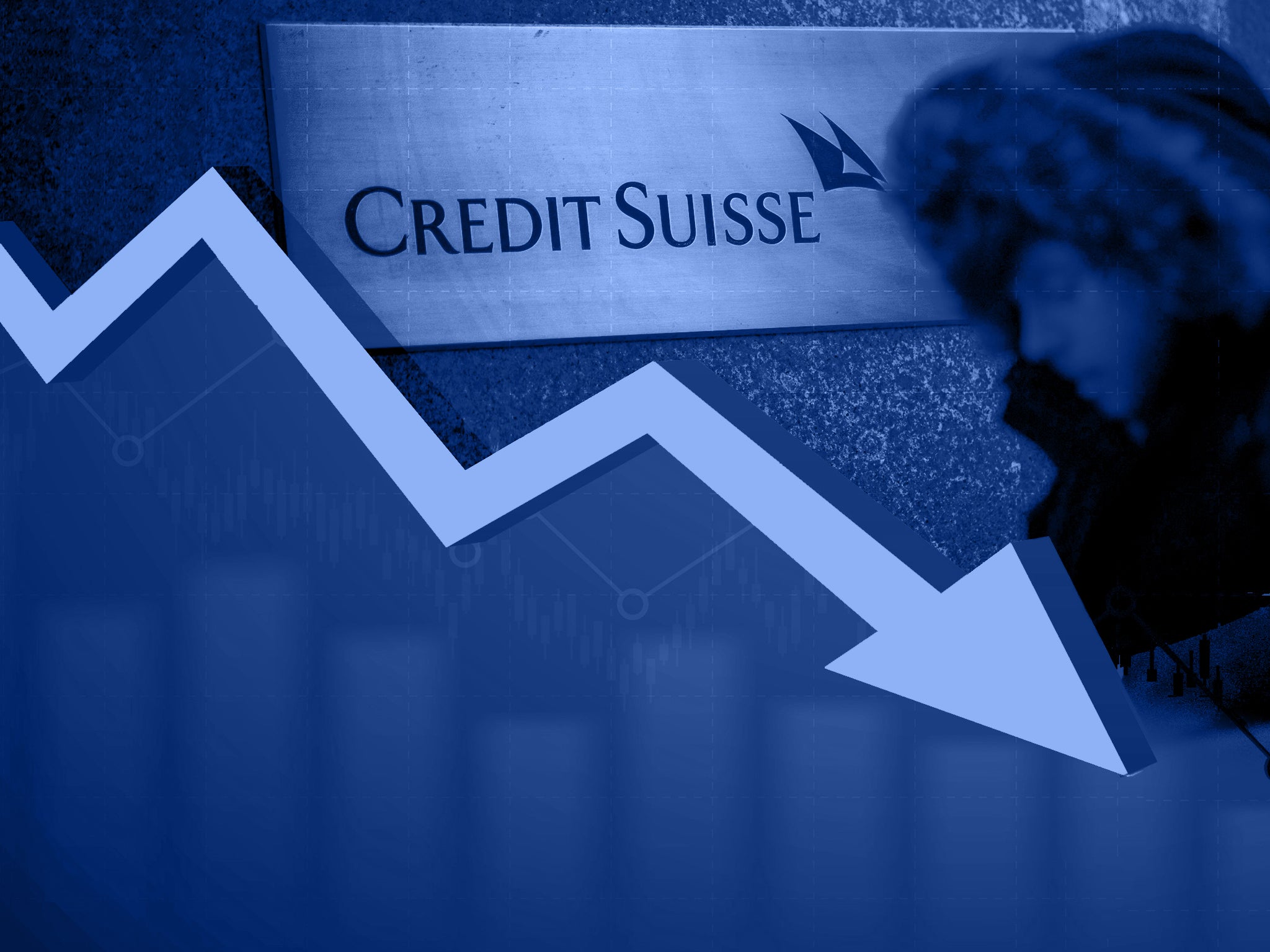Cracks exposed in global banking system – but this isn’t a 2008 rerun yet
Credit Suisse stabilised by colossal loan but the crisis isn’t over. Banks are better capitalised than in 2007-08 but the system is being sorely tested, writes James Moore


It’s been a case of lather, rinse, repeat in banking this week, with the collapse of Silicon Valley Bank followed by a much bigger crisis in the form of Credit Suisse.
Mid-sized SVB was more systemically significant than many had assumed, raising big questions about US oversight.
However, there was never any doubt about the dangers from a stricken Credit Suisse, a pillar of the Swiss banking establishment and a (shaky) member of the top table.
Regulation in Europe is (mostly) somewhat firmer than in the US, but that hasn’t helped Credit Suisse. Cash has, in the form of a colossal loan from the Swiss Central Bank, which has made SFr50bn (£44.7bn) available in a bid to shore up confidence in the troubled lender. It has calmed the waters.
The rally got started first thing, wobbled a bit, but was back on even after the European Central Bank stuck to its guns by raising rates by 0.5 per cent, citing the need to control inflation. It said it was monitoring the situation and would respond if needed.
Spiking interest rates are the cause of the current problems. Generally, they are good for profitability because banks increase the rates charged to borrowers more quickly than the rates paid out to depositors. But the speed of the rate rises sent bond prices tumbling. That’s no problem for banks that can hold their bonds to term, but for others it can crystallise huge losses if depositors start to run and the bank has to sell at low prices. Which is what happened at SVB.
The other problem with higher rates is that more loans go bad; it’s a slower burn, but it will happen.
Switzerland’s decision to shore up Credit Suisse drew approval from central bankers and finance ministers, who aren’t getting much sleep at the moment. Are they right? Probably.
What is going on here is a huge write-down in the value of bank assets (in this case, bonds). It isn’t quite the same as the last one, which occurred in 2007/08 and involved mortgages; the assets are different. But the end result isn’t. Confidence is knocked, the weaker outfits get brutally exposed. Neither SVB nor Credit Suisse resemble well-run banks.
An important difference between the current crisis and the last (much bigger) one is that banks today are generally much better capitalised than at the dawn of 2007, particularly in the UK and most of Europe where the regulatory screws remain tight.
That doesn’t mean we shouldn’t worry. Banks are built on confidence and it has been fast evaporating. San Francisco’s First Republic Bank looks shaky, and has now been shored up by $30 billion in deposits brokered by federal agencies.
However, Credit Suisse will not be allowed to fail like Lehman Brothers. We are nowhere near that yet and so far it looks as if the current crisis can be contained, with the main victims being investors who get kicked by repriced risk in holding banks.
Rob Brugerman, senior investment manager at RBC Brewin Dolphin, poses the question: Are banks uninvestable?
“I certainly wouldn’t want to be a shareholder or bondholder, but we think that the latest falls are more to do with sentiment towards the banking sector, in general, and the weaker banks, in particular,” he says.
Brugerman thinks UK banks might even present an opportunity for investors. (Barclays has taken the biggest hit because of its investment bank and US exposure). Just not yet. Buckle up; the ride over the next few weeks is going to be bumpy.






Join our commenting forum
Join thought-provoking conversations, follow other Independent readers and see their replies
8Comments